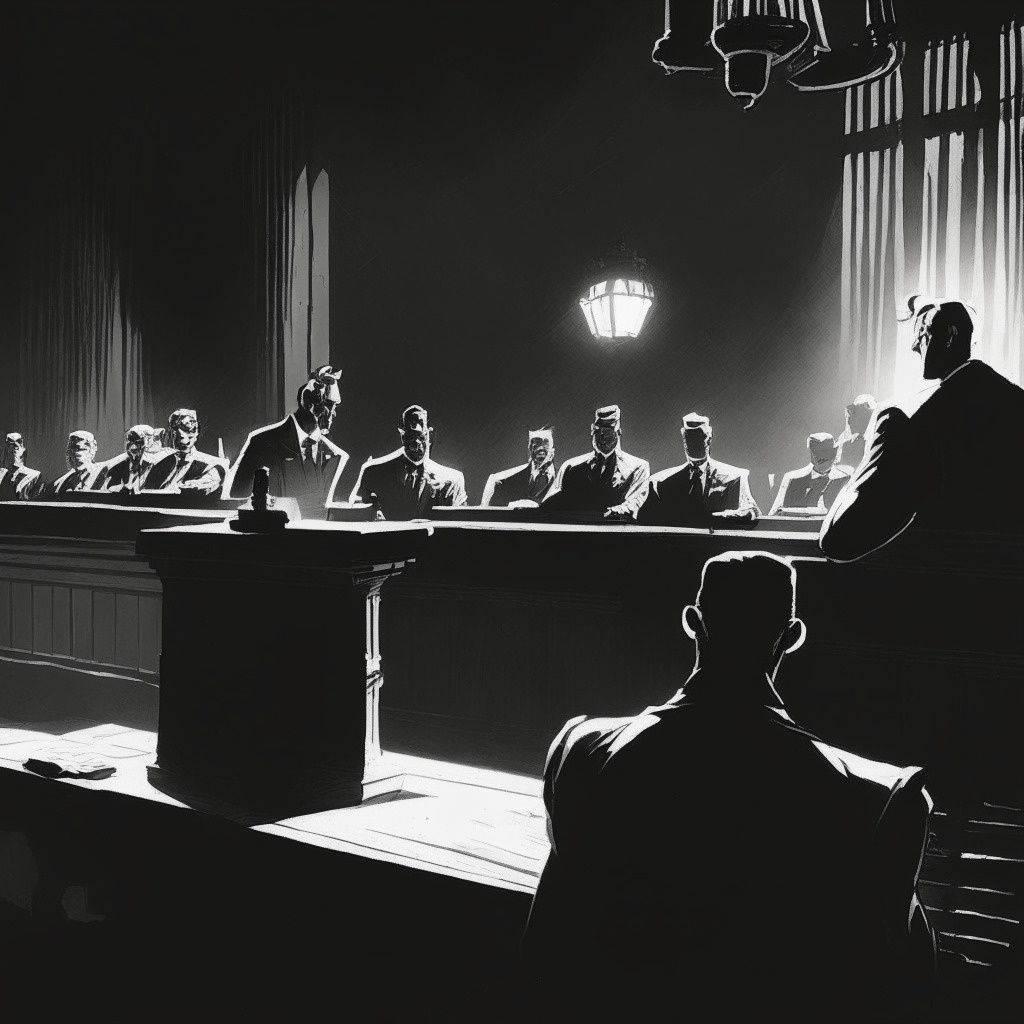Following a court appearance last week, FTX founder and former CEO, Sam Bankman-Fried, has found himself under federal scrutiny as prosecutors push for his detention. Accused of sharing potentially inflammatory documents with The New York Times, allegations suggest he intended to harass a fellow FTX executive and potentially manipulate her testimony.
The U.S. Department of Justice made a clear request: Bankman-Fried should be jailed until his trial begins. However, the former executive’s defense team argues otherwise, citing the First Amendment right to defend his reputation and respond to reporters.
Bankman-Fried’s legal story has gathered significant attention. After his arrest, he enjoyed some freedom, released on bond and residing at his parents’ home. The prosecution argues this privilege has been abused, and he should await his trial under detainment. However, the defense retorted, contending they were not warned about the DOJ’s move towards seeking detention.
In another twist, accusations against Bankman-Fried from the DOJ claim the former executive has attempted to tamper with witness testimony on two occasions. One instance allegedly involved sharing a private diary with The Times, reacting to negative media coverage about him and his relations with the fellow FTX executive.
Lawyers following the case have noted that defining “tampering” will play a pivotal role in the prosecution’s arguments. Bankman-Fried could appeal any revocation of his bond, adding further tension to the ongoing case.
According to Orlando Cosme, founder and managing partner at OC Advisory, judges have immense discretion in matters like bond revocation. “Intimidating witnesses is not protected speech,” he stated. The evidence presented by the DOJ will need to convince the judge that Bankman-Fried is likely to continue such behavior if they want their motion to succeed.
Outside the courtroom, another variable is the recent decision by the DOJ to drop one of the eight charges against Bankman-Fried, specifically related to campaign finance, due to treaty obligations with the Bahamas. This decision spurred high-profile individuals to claim that a conspiracy by elite politicians was in place to protect the former executive.
As the legal drama folds, in the political sphere, the House Financial Services and Agriculture Committees held markups on five crypto-related bills last week. Yet the question remains: will these bills transform into law?
While the House is on recess, lawmakers’ primary focus upon return is expected to be on government funding bills. Nevertheless, the contradictory court decisions about whether token sales violate federal securities laws can’t be ignored. The crypto industry is pushing for greater legislative clarity, which could be the next significant move for Congress.
As the crypto sphere awaits the next steps, eyes remain locked on the evolution unfolding within these intertwining tales of regulations and trial narratives.
Source: Coindesk




